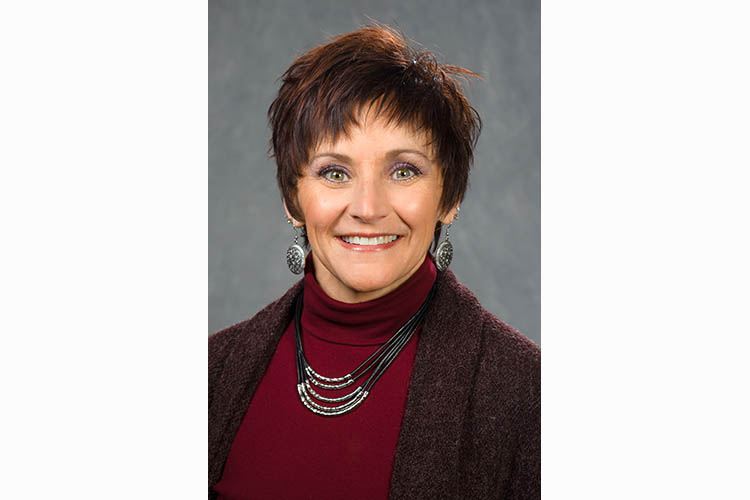Collaboration between UK colleges results in fine arts specialist
Collaboration between UK colleges results in fine arts specialist

LEXINGTON, Ky., — A unique collaboration between the University of Kentucky's College of Agriculture, Food and Environment and College of Fine Arts has resulted in the hiring of one of the few Cooperative Extension arts specialist in the country. Stephanie Richards, who was hired in 2005 in Pike County as the first fine arts extension agent in the nation, accepted the job.
Richards’ office is in the College of Fine Arts where she is a lecturer in the Department of Arts Administration, but Arts Extension is housed in the College of Agriculture, Food and Environment’s Community and Economic Development Initiative of Kentucky, CEDIK.
“In CEDIK, the impact numbers that our arts agents have collected have demonstrated that there is real value from incorporating the arts into a community development strategy,” said Melissa Bond, arts extension program leader for CEDIK. “We have a three-tiered approach for arts in our communities that have arts agents. They work in community development through the arts, as well as promote artistic excellence in the community and create arts engagement opportunities for all residents.”
Currently, there are three counties — Greenup, Pike and Whitley — with arts extension agent positions, but Bond and Richards hope to see that number increase in the not-so-distant future. In the meantime, however, 4-H youth development and family and consumer sciences agents often spearhead arts programming in their counties.
Richards is reluctant to offer a hard definition of fine arts. It can be music, theater, dance or the visual arts, but also high quality cultural arts such as storytelling or heritage craft, she said. In her new role, she will be providing agents and educators with publications and monthly lesson plans, as well as giving them better access to resources on campus.
“Often the agents are so busy out in the counties doing their programming, and faculty are so busy on campus with their programming, there is no bridge between the two on how to get those resources connected. I will be that bridge,” she said.
Her plan is to connect fine arts faculty with students in the counties by coordinating in-service trainings for agents, linking county residents across Kentucky with faculty and staff in the College of Fine Arts and providing mini-grants to encourage collaboration between campus and counties. This will provide them not only with a stronger foundation on which to build their college education, but also teach them the essential skills that an arts education provides: critical thinking, teamwork, problem-solving and the ability to finish what they start.
“Then Kentucky will truly be a ‘State of the Arts,’” Richards said.
Richards understands how important the arts are to local economies. As the founder of Artists Collaborative Theatre in Elkhorn City, a self-sustaining community theater organization, she saw first-hand how ACT impacted the local economy in a town with a population of less than 1,000.
“It has an $85,000 annual budget, and it deposits that budget straight back into the local economy. For Elkhorn City, that’s a substantial amount,” she said. “The Dollar General Store is happy we’re here. The gas station is very happy that our volunteers travel. The pizza place is very happy that ACT is in business. As Elkhorn City has been finding its identity, ACT has been there as a backbone, saying ‘here’s an arts organization that the town and the region are supporting.’”
CEDIK has a creative economy initiative, where staff like Bond work with artisans on pricing, marketing and displaying their products to increase sales and visibility. Most recently CEDIK has hired an arts extension associate to work directly with 10 Kentucky counties to provide arts programming to families affected by substance use disorder.
“Depending on our counties, there are a variety of arts disciplines offered,” Bond said. “Our Kentucky data suggest that art has a direct and meaningful impact on community pride and can be transformative for a community. That can be through murals or art exhibits or celebrating the musical skills of the local people. We’re seeing so many ways it positively impacts community pride, which is a critical factor in the longevity and development of a community.”
For more information on UK Cooperative Extension’s arts extension program, contact Bond at 859-218-4385 or melissa.bond@uky.edu or Richards at 606-432-2534 or stephanie.richards@uky.edu.
Community & Leadership Development Extension

